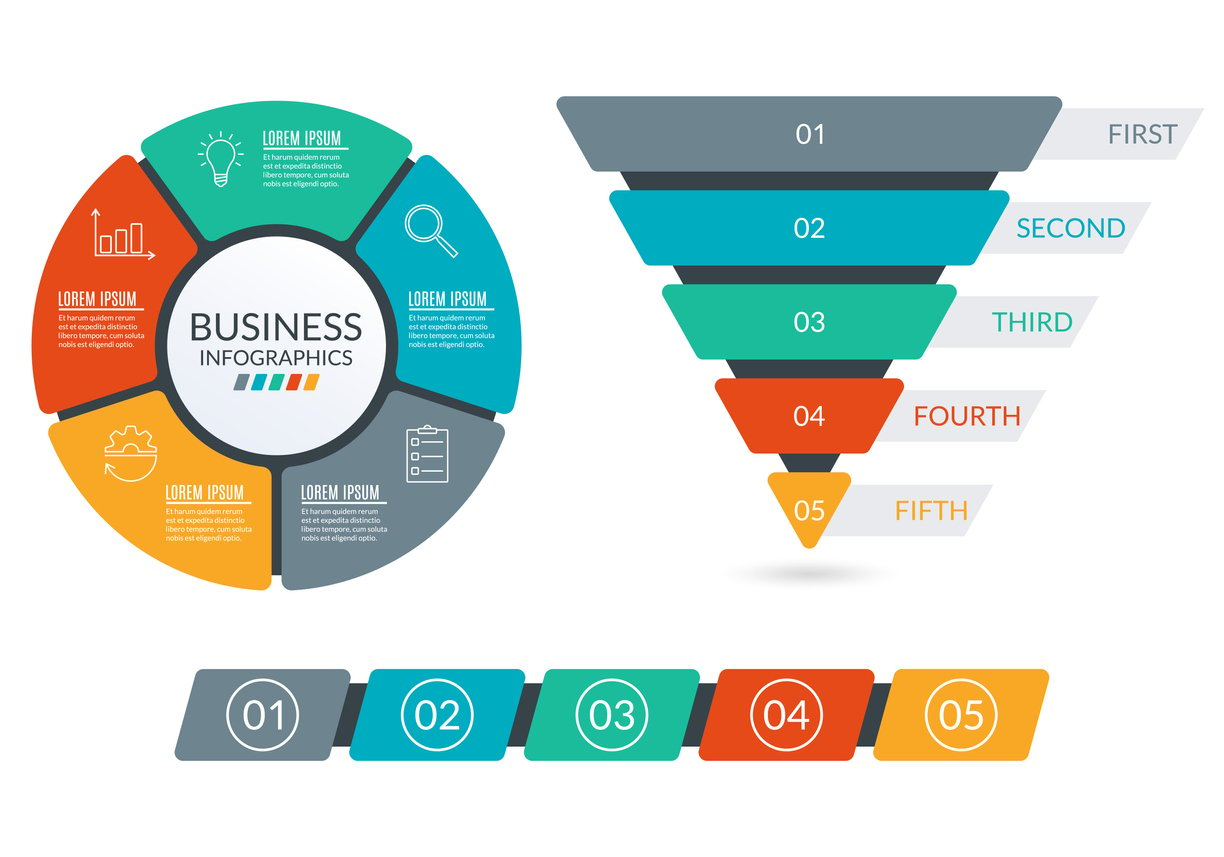
Comprehensive Guide on Sales Coaching [Sales Experts Edition]
 Updated on
Updated on
 By Carlos Correa
By Carlos Correa
Carlos Correa
Carlos has been involved in the sales space for well over ten years. He began in the insurance space as an individual sales agent, managing teams as s...
learn more
Carlos Correa
Carlos has been involved in the sales space for well over ten years. He began in the insurance space as an individual sales agent, managing teams as s...
Table of Contents
Table of Contents
Here's something sure to make any sales leader feel more than a little uncomfortable:
According to The State of Sales Training and Onboarding by Spekit, 47% of salespeople have left their jobs due to poor onboarding and coaching.
Crazy, right? Even if your reps are meeting their quotas and earning decent money, the drive to improve, if not met, will end up pushing them to find a new job.
It's often said that younger generations don't want managers, they want coaches, and this is especially true for millennial and Gen Z sales reps.
So, how can sales leadership meet this need? What is actually involved in sales coaching, and how does one go about becoming a great sales coach?
In this guide, we'll discuss a number of key sales coaching concepts, including:
- What sales coaching
- What sales coaches do and what makes a great one
- Different styles of coaching a sales team
- Sales coaching techniques
- Professional sales coaching tips
- How to implement a structured sales coaching training program
- Sales coaching for different industries
Let's start with a bit of 101.
What is Sales Coaching?
Sales coaching is a process that holds as its main goal the development and upskilling of individual sales reps.
Sales coaching involves:
- Establishing one-on-one relationships between sales leaders and salespeople
- Monitoring individual sales rep performance
- Conducting team and individual training sessions
- Providing positive feedback to reps when they display desired sales behaviors
- Working together to meet loftier and loftier sales goals
While one of the goals of coaching a sales team is to improve performance (and to exceed sales quotas), this is not the only objective.
Good sales coaches seek to develop the skills of their salespeople, which may involve leadership skills and interpersonal skills as well as hard sales skills.
What Does a Sales Coach Do?

Sales coaches work with individual sales team members to improve sales performance.
Sales coach responsibilities include:
- Reviewing sales data to understand individual rep performance
- Listening to call and meeting recordings
- Identifying opportunities for improvement
- Meeting with the sales representative to review the week and communicate opportunities for improvement
- Developing and training initiatives
- Onboarding and training new sales agents
- Supporting the sales team with the tools they need to do well in their job
Who Should Be the Sales Coach in Your Organization?
A major challenge for sales leadership is determining who is to be responsible for sales coaching initiatives.
In most organizations, this responsibility falls upon the sales manager as the leader of the sales team.
This can be a valid approach, but it's important to realize that sales management and sales coaching aren't exactly the same discipline.
Sales managers tend to be responsible for a variety of duties, including:
- Reporting to higher sales leaders on sales volume
- Developing sales processes
- Resolving client issues
- Hiring and onboarding new sales reps
- Working with product and operations teams
Sales coaches, on the other hand, have a more singular focus: improving sales performance.
Key Qualities of an Effective Sales Coach

Not every salesperson or manager makes a great sales coach. The best coaches share these key qualities:
- Strong Communication Skills: The ability to clearly articulate strategies, provide constructive criticism, and encourage open discussions.
- Empathy & Active Listening: A successful coach sales professional understands the challenges sales reps face and adapts coaching styles to their needs.
- Data-Driven Approach: Effective sales coaching training includes tracking performance metrics and using insights to refine strategies.
- Adaptability: Every salesperson is different. The best coaching sales reps approach takes individual learning styles into account.
- Motivational Leadership: The right sales coaching techniques inspire teams, building confidence and resilience even in tough sales cycles.
The Difference Between a Sales Manager and a Sales Coach
A sales manager is responsible for overseeing the team's day-to-day activities, setting quotas, and ensuring targets are met. A sales coach, however, focuses on sales performance coaching, helping reps develop skills, refine strategies, and build confidence.
|
Sales Manager |
Sales Coach |
|
Focuses on numbers and performance metrics . |
Focuses on skill development and confidence-building. |
|
Sets quotas and assigns tasks. |
Conducts role-playing exercises and personalized feedback sessions. |
|
Manages pipeline and reporting. |
Helps sales reps refine pitches and objection handling. |
|
Evaluates past performance. |
Works on improving future sales behaviors. |
While some organizations expect sales managers to double as sales coaches, the reality is that sales coaching training requires a different mindset—one centered on teaching rather than just managing.
When to Invest in External Professional Sales Coaching
There are situations where hiring an external sales coaching expert or using sales coaching software makes more sense. Here's when you should consider it:
- Your Sales Team's Performance Has Plateaued: If reps are struggling despite internal training, an external professional sales coaching program can provide new insights and proven methodologies.
- You Lack an Experienced Internal Coach: If your sales leaders lack coaching expertise, bringing in an expert or using structured sales coaching training programs can be more effective.
- Scaling a Sales Team Rapidly: When onboarding new sales reps quickly, a dedicated sales coaching program can standardize training and shorten ramp-up times.
- Low Closing Rates & High Turnover: If your team is losing deals frequently or facing high attrition, structured sales performance coaching can address skill gaps and boost morale.
Some companies opt for real estate sales coaching or industry-specific training programs to ensure their reps receive targeted coaching relevant to their market.
Different Styles of Coaching a Sales Team

No single sales coaching style works for every team. Effective coaching sales reps requires flexibility, adapting to the needs of individual sellers and the overall team. The right approach depends on factors like experience levels, company culture, and sales goals.
Some sales teams thrive under a structured, directive coaching approach, while others perform better with a more open-ended, facilitative coaching style.
Likewise, balancing one-on-one sales coaching with group training sessions ensures that both personalized development and team-wide consistency are maintained.
Directive vs. Facilitative Coaching: Which Works Best?
Sales coaches generally fall into two categories: directive and facilitative. Both styles have their advantages, but the best sales coaching techniques often blend the two based on the situation.
|
Directive Coaching |
Facilitative Coaching |
|
Sales coach provides direct, step-by-step instructions |
Sales coach asks questions and encourages reps to find solutions |
|
Best for new or struggling reps who need clear guidance |
Best for experienced reps who need fine-tuning rather than instruction |
|
Focuses on correcting mistakes and reinforcing best practices |
Helps sales reps develop problem-solving skills and think critically |
|
Often used in highly structured environments like call centers |
Works well for teams that value creativity and adaptability |
When to Use Each Style:
- Use directive sales coaching training when onboarding new hires, correcting bad habits, or reinforcing key selling techniques.
- Use facilitative coaching when coaching experienced reps, brainstorming strategies, or preparing for complex deals.
Blending both styles is often the most effective approach. A strong sales coach knows when to give explicit direction and when to let reps figure things out on their own.
One-on-One vs. Group Sales Coaching: Finding the Right Balance
Both one-on-one sales coaching and group coaching play essential roles in a team's success. The key is knowing when to use each approach.
One-on-One Sales Coaching
Personalized coaching sessions allow a sales coach to focus on individual challenges, strengths, and skill gaps. This approach is best for:
- Addressing specific performance issues.
- Refining a rep's pitch, negotiation skills, or objection-handling techniques.
- Offering targeted sales coaching tips based on personal strengths and weaknesses.
Example: A sales performance coaching session might involve listening to a rep's call recording and providing tailored feedback on tone, wording, and objection handling.
Group Sales Coaching
Group sessions ensure consistency across the team and create opportunities for peer learning. This approach is useful for:
- Teaching sales coaching techniques that apply to the entire team.
- Running role-play exercises and brainstorming strategies together.
- Reinforcing company-wide sales goals and best practices.
Example: A real estate sales coaching session might involve group training on handling objections related to fluctuating property prices, with team members practicing responses together.
Balancing Both Approaches:
- Use one-on-one coaching for skill refinement and personalized feedback.
- Use group coaching to reinforce best practices and encourage collaboration.
- Leverage sales coaching software to track progress and maintain accountability in both settings.
Sales Performance Coaching vs. Sales Management Coaching
While sales performance coaching and sales management coaching share some similarities, they serve different purposes.
|
Sales Performance Coaching |
Sales Management Coaching |
|
Focuses on improving individual rep performance |
Focuses on developing leadership skills in sales managers |
|
Covers selling techniques, communication, and confidence-building |
Covers hiring, motivating, and coaching a sales team |
|
Involves structured feedback sessions, role-playing, and skill-building exercises |
Involves mentoring sales managers on strategy, leadership, and team development |
|
Best for frontline sales reps who need skill refinement |
Best for managers looking to improve their ability to lead and coach |
When to Invest in Each:
- If your sales reps struggle with closing deals, sales performance coaching can refine their approach.
- If your sales managers need help guiding their teams, sales management coaching will help them become better leaders.
For instance, a company expanding rapidly might invest in professional sales coaching for its reps while also offering sales manager coaching to develop future sales leaders.
Sales Coaching Techniques

The best professional sales coaching methods combine structured coaching, real-time analysis, and motivation to ensure lasting improvements. Here are proven techniques every sales manager coaching program should include:
1. Active Listening and Feedback-Driven Coaching
A strong sales coach listens more than they speak. Active listening involves fully focusing on a sales rep's words, tone, and nonverbal cues, allowing the coach to provide meaningful feedback.
Why It Works:
- Sales reps feel heard, valued, and more open to coaching.
- Coaches can identify subtle issues in communication that affect closing rates.
- Real-time feedback reinforces strengths and corrects weaknesses.
Best Practices for Feedback-Driven Coaching:
- Focus on constructive feedback rather than criticism. Point out what works well before suggesting improvements.
- Use specific examples from calls, emails, or sales meetings to illustrate key points.
- Encourage reps to self-assess before offering feedback. Asking, "How do you think that call went?" prompts reflection and ownership.
According to research, companies that emphasize ongoing sales coaching training see 8% greater annual revenue growth compared to those that don't.
2. Role-Playing and Real-Time Call Analysis
Role-playing allows reps to practice handling real-world objections, improving their confidence and adaptability. When combined with real-time call analysis, this method creates immediate learning opportunities.
Why It Works:
- Helps reps sharpen their responses to objections, pricing concerns, and competitor comparisons.
- Creates a safe environment for practicing challenging scenarios before engaging with real prospects.
- Encourages peer learning by allowing reps to observe and critique each other's approaches.
Best Practices for Role-Playing:
- Assign different roles, such as "prospect," "sales rep," and "observer," to provide diverse perspectives.
- Focus on common objections and challenging customer personas.
- Record and review role-play sessions to identify areas for improvement.
A study by Badgeville found that sales coaching techniques like role-playing improve sales performance rates by 32%.
Moving on. Listening to live or recorded sales calls allows a sales coach to break down conversations and provide targeted feedback. This is particularly effective in sales performance coaching, where small adjustments in tone, word choice, or pacing can significantly impact results.
Key Focus Areas:
- Did the rep ask enough qualifying questions?
- Did they handle objections smoothly?
- Did they effectively transition to a close?
Sales coaching software with AI-driven call analysis can highlight conversation patterns and pinpoint where reps lose momentum.
3. Data-Driven Coaching Using Analytics and KPIs
Numbers don't lie. High-performing sales teams rely on sales coaching software and CRM analytics to guide their coaching efforts. By tracking key performance indicators (KPIs), a sales coach can identify patterns, strengths, and areas for improvement.
Key Sales Coaching Metrics to Track:
- Conversion Rate – Measures how many leads convert into paying customers.
- Call-to-Close Ratio – Highlights how many calls or meetings it takes to close a deal.
- Average Deal Size – Helps assess whether reps are upselling and cross-selling effectively.
- Response Time – Tracks how quickly reps follow up with leads, impacting close rates.
- Pipeline Velocity – Measures how fast deals move through the sales funnel.
How to Use Data for Coaching Sales Reps:
- Identify top performers and analyze their behaviors to create replicable strategies.
- Pinpoint struggling reps and focus coaching efforts on specific weak points.
- Set data-driven goals for continuous improvement rather than vague performance targets.
4. Coaching Sales Reps Through Motivational and Skill-Based Approaches

Successful sales coaching isn't just about technique—it's also about motivation. Reps need to feel empowered, confident, and driven to improve. The best sales coaches combine skill-building with motivation to keep their teams engaged.
Motivational Coaching Strategies:
- Personalized Goals: Set individual targets that align with reps' career aspirations.
- Recognition and Rewards: Acknowledge top performers with incentives, shoutouts, or bonuses.
- Growth Mindset Encouragement: Frame challenges as learning opportunities, not failures.
A study by Gallup found that highly engaged teams produce 21% more profitability than disengaged ones, highlighting the impact of motivational coaching.
Skill-Based Coaching Strategies:
- Continuous Learning: Encourage reps to read sales coaching books, attend training sessions, and stay updated on industry trends.
- Scenario-Based Training: Use real-world sales challenges to teach adaptive selling techniques.
- Accountability Partners: Pair up reps for peer coaching, where they critique and support each other's progress.
A combination of professional sales coaching, structured training, and motivational techniques ensures that reps are not only skilled but also driven to succeed.
5. Use Sales Reporting to Inform Sales Coaching Requirements
A major benefit afforded by modern CRMs and sales platforms is their advanced reporting and analytics capabilities.
Sales coaching can and should use these insights to understand where reps need the most assistance.
For example, many CRMs can provide attrition rates at each pipeline stage. A sales rep who is underperforming at the sales presentation stage, say, is a good candidate for further coaching in this area.
Sales coaches should dig through these reports to identify problem areas, and then guide sales coaching conversations in this direction.
6. Hold Regular Call Recording Reviews
If you're managing an inside sales team that is primarily phone-based, then one of the best sales coaching techniques is to conduct regular reviews of sales call recordings.
Sales coaches should listen to phone conversations, identify areas where the individual can improve, and then provide feedback during a one-to-one coaching session.
The trick here is to know which calls to listen to.
The average inside sales rep makes about 10 calls an hour, or roughly 400 dials a week. Obviously, you don't want to be listening to every one of these!
One way you can get around this is to ask sales reps to submit one call recording per day (you can adjust the volume up or down based on your requirements) where they felt like they could do better.
This makes the call review process more efficient, and also encourages buy-in from sales reps into the coaching process.
7. Take a Holistic Approach
When you coach sales agents, your conversations should be focused on sales performance, more through the lens of behaviors than results.
However, sales coaches should seek to gain an understanding of less tangible factors such as:
- Employee engagement
- Employee satisfaction and happiness
- Career goals and progression objectives
Be sure to cover these points in your sales coaching conversations as well. This is important not only for building rapport and trust but for improving retention rates, as unhappy and disengaged sales reps are much more likely to leave.
8. Include Some Form of Self-Evaluation

A major aspect of sales coaching is asking sales reps to self-evaluate.
Self-evaluation of performance is easy; reps know if they've met their quotas or not.
But sales coaching should focus on asking reps to evaluate themselves on aspects of their role such as confidence, product knowledge, retention of training materials, and practice of specified sales behaviors.
Having reps self-evaluate improves buy-in, makes individuals more mindful of their actions during the week (and how these actions impact their sales performance), and also serves as a jumping-off point for identifying challenges that sales coaches may not have identified themselves.
9. Get Buy-in by Involving Reps in Goal-Setting
Though goals such as activity metrics and sales quotas are likely set by the sales manager, coaches can still get reps involved in setting shorter-term goals as a way of increasing engagement in the sales coaching process.
For example, if you're working with an agent to improve their close rate, a good starting point is to identify a specific behavior (such as a word track or closing question) that high-performers in this area use.
You can then have the rep set a goal of using that phrase a percentage of the time during their conversations, and review the impact of this commitment in the following session.
10. Reinforce Positive Behaviors
When we think about training and coaching, we tend to focus on identifying negative behaviors (ones that don't turn into good sales results) and eliminating them.
More effective, though, is to encourage, praise, and reinforce positive behaviors.
Let's take a simple example:
You're coaching an outbound sales rep who is currently opening each call with "Hi, it's John from XYZ company, is now a good time to talk?"
You've identified that high-performers use a different opener ("Hi, it's John from XYZ company. If you'd give me just 30 seconds to explain why I'm calling, I'll be super quick.")
In this situation, you'll have more success by identifying when the salesperson uses the latter phrase and delivering positive feedback than you will by letting them know each time they used the old one.
11. Focus On One Thing at a Time
Sales is a multifaceted role.
Even this most experienced salesperson on your team will have a variety of things they can improve on.
As a sales coach, it's your job to identify the biggest levers to pull. That is, the behaviors you can change that will have the most impact.
Rather than trying to upskill sales reps in every dimension possible, focus on one specific behavior at a time.
Once you've worked with a rep to nail down the most impactful sales behavior, move on to the next one, and so on.
Professional Sales Coaching Tips

A sales coach should focus on equipping sales reps with the knowledge, skills, and motivation to improve their performance. Here are two essential sales coaching tips that drive long-term success.
The Importance of Continuous Learning and Sales Coaching Tools
Sales is an ever-evolving field. New technologies, buyer behaviors, and industry trends constantly shape the way businesses sell. A sales coach must ensure that their team engages in continuous learning to stay competitive.
Why Continuous Learning Matters in Sales Coaching Training
- Boosts Adaptability: Sales reps who regularly update their knowledge can handle shifting market demands more effectively.
- Enhances Selling Skills: Ongoing training sharpens negotiation, objection-handling, and closing techniques.
- Increases Confidence: Reps who feel well-equipped with knowledge and strategies perform better under pressure.
In addition to the usefulness of sales coaching, using the right sales coaching software and tools streamlines the coaching process and provides actionable insights. Some of the best tools include:
- CRM Systems (e.g., Ringy, Salesforce, HubSpot): Track leads, sales activities, and conversion rates to assess rep performance.
- Call Recording & AI-Powered Analysis (e.g., Gong, Chorus): Analyze real-time sales calls to improve communication and objection-handling skills.
- Learning Management Systems (LMS) (e.g., Lessonly, Mindtickle): Provide structured sales training modules for ongoing development.
- Performance Dashboards (e.g., InsightSquared, Clari): Offer data-driven insights on individual and team performance to guide coaching efforts.
A professional sales coach should integrate these tools into their sales coaching techniques to ensure training is data-driven, measurable, and effective.
Setting Realistic Goals and Tracking Progress
Goal setting is a fundamental part of sales coaching. Without clear objectives, sales reps struggle to measure success and stay motivated. A sales coach should set realistic, achievable goals and track progress regularly.
How to Set Effective Sales Goals
- Use SMART Goals: Goals should be Specific, Measurable, Achievable, Relevant, and Time-bound. Example: "Increase close rates by 10% in the next 90 days."
- Balance Short-Term and Long-Term Objectives: Focus on both immediate targets (e.g., weekly call volume) and broader goals (e.g., annual revenue growth).
- Align with Individual Strengths and Weaknesses: A sales coach should tailor goals to each rep's skill level and development needs.
Once goals are in place, a sales coach must continuously track performance and adjust strategies as needed.
- Weekly or Bi-Weekly Check-Ins: Regular one-on-one meetings keep reps accountable and provide opportunities for course correction.
- Data-Driven Assessments: Use sales coaching software and CRM analytics to measure KPIs like conversion rates, deal velocity, and revenue per rep.
- Recognition and Adjustments: Acknowledge successes and tweak strategies for underperforming reps based on data insights.
Example: If a rep struggles with closing deals despite strong prospecting numbers, the sales coach should focus on sales coaching techniques that improve closing skills, such as objection handling or price negotiation strategies.
How to Implement a Structured Sales Coaching Training Program
A well-structured sales coaching training program ensures consistency, skill development, and measurable improvements in sales performance. Below is how to build an effective program.
Measuring Success and Adapting Coaching Methods
The most effective way to measure and understand the impact of your sales coaching efforts is to decide on key metrics you're looking to influence.
For example, you may decide to coach sales reps in a specific part of the sales process (let's say closing), in which case you'd want to track a relevant metric such as your deal win rate and monitor this metric as coaching progresses.
There are a variety of metrics you can measure to understand how effective your sales performance coaching efforts are:
|
Sales Performance Metrics |
Sales Activity Metrics |
Team Culture Metrics |
|
Sales quota attainment |
Calls |
Employee retention rates |
|
Deal win rate |
Demos |
Employee engagement and satisfaction score |
|
Revenue growth |
Emails |
Sick days |
|
Pipeline value |
New leads |
Stress level |
|
Sales velocity |
Appointments |
Percentage of reps who get promoted to more senior roles |
|
Pipeline stage conversion rates |
Total prospects in the pipeline |
|
|
Average deal size |
Sales Coaching for Different Industries

Here's how professional sales coaching applies to real estate, insurance, and retail sales.
Real Estate Sales Coaching
The real estate industry is highly competitive, requiring sales reps to master relationship-building, negotiation, and market analysis. A real estate sales coach must focus on helping agents develop persuasive communication skills, understand market trends, and effectively handle objections.
Key Sales Coaching Techniques for Real Estate Agents
- Active Listening & Consultative Selling: Real estate buyers and sellers expect personalized service. A sales coach should train agents to listen actively and ask the right questions to identify client needs.
- Objection Handling & Negotiation Skills: Agents frequently face objections related to pricing, market conditions, and financing. Role-playing exercises can help them refine their responses.
- Lead Nurturing & Follow-Up Strategies: Since real estate sales cycles can be lengthy, agents must stay in touch with prospects through effective follow-up techniques and CRM automation.
A real estate sales coaching program should equip agents with the skills and tools needed to close deals efficiently while maintaining strong client relationships.
Insurance Sales Coaching
Selling insurance requires a deep understanding of policies, risk management, and trust-building. A sales coach in the insurance industry must focus on improving communication, handling objections, and educating customers about coverage options.
Key Sales Coaching Techniques for Insurance Agents
- Storytelling & Emotional Selling: Insurance is not just about policies; it's about protecting people's futures. Agents must learn to connect with prospects through compelling stories.
- Handling Complex Objections: Many customers hesitate due to price concerns or lack of urgency. A sales coach should teach agents how to address these objections with confidence.
- Cross-Selling & Upselling Strategies: Since many clients only purchase basic coverage, reps must learn how to identify additional needs and present higher-value policies.
An insurance sales coach should prioritize sales coaching tips that help agents establish credibility, educate clients, and create a sense of urgency without being pushy.
Retail Sales Coaching
Retail sales rely on customer experience, product knowledge, and upselling skills. A sales coach must focus on in-store engagement, handling objections, and maximizing revenue per customer interaction.
Key Sales Coaching Techniques for Retail Employees
- Active Listening & Needs-Based Selling: Employees must assess customer needs quickly and recommend the right products or services.
- Upselling & Cross-Selling Training: Encouraging customers to purchase complementary products without being aggressive requires well-practiced sales techniques.
- Customer Experience & Engagement Strategies: Providing excellent service leads to higher retention and positive word-of-mouth marketing.
A retail sales coaching strategy should focus on improving sales performance coaching through customer interactions, product positioning, and seamless upselling.
Conclusion

Let's quickly recap on the 11 sales coaching tips we discussed here today:
- Understand that coaching and training aren't the same things
- Include one-on-ones
- Build a resource center for knowledge sharing
- Leverage your team
- Use sales reporting to inform sales coaching requirements
- Hold regular call recording reviews
- Take a holistic approach
- Include some form of self-evaluation
- Get buy-in by involving reps in goal-setting
- Reinforce positive behaviors
- Focus on one thing at a time
After more tips on leading and coaching a sales team? Check out our blog for more helpful insights.

Skyrocket your sales with the CRM that does it all.
Calling? Check. SMS? Check. Automation and AI? Check. Effortlessly keep in touch with your customers and boost your revenue without limits.

Take your sales to new heights with Ringy.
Sales in a slump? Ringy gives you the tools and flexibility you need to capture leads, engage with them, and turn them into customers.
Subscribe to Our Blog
Enter your email to get the latest updates sent straight to your inbox!
Categories
Related Articles



































































































